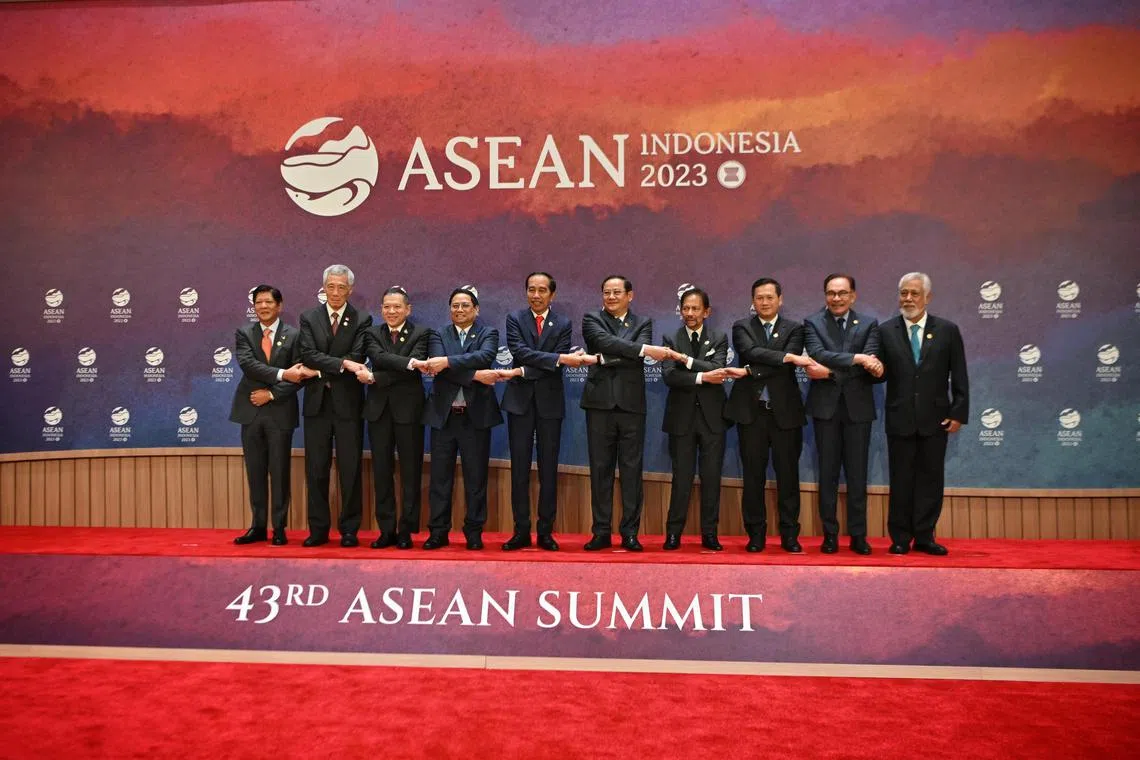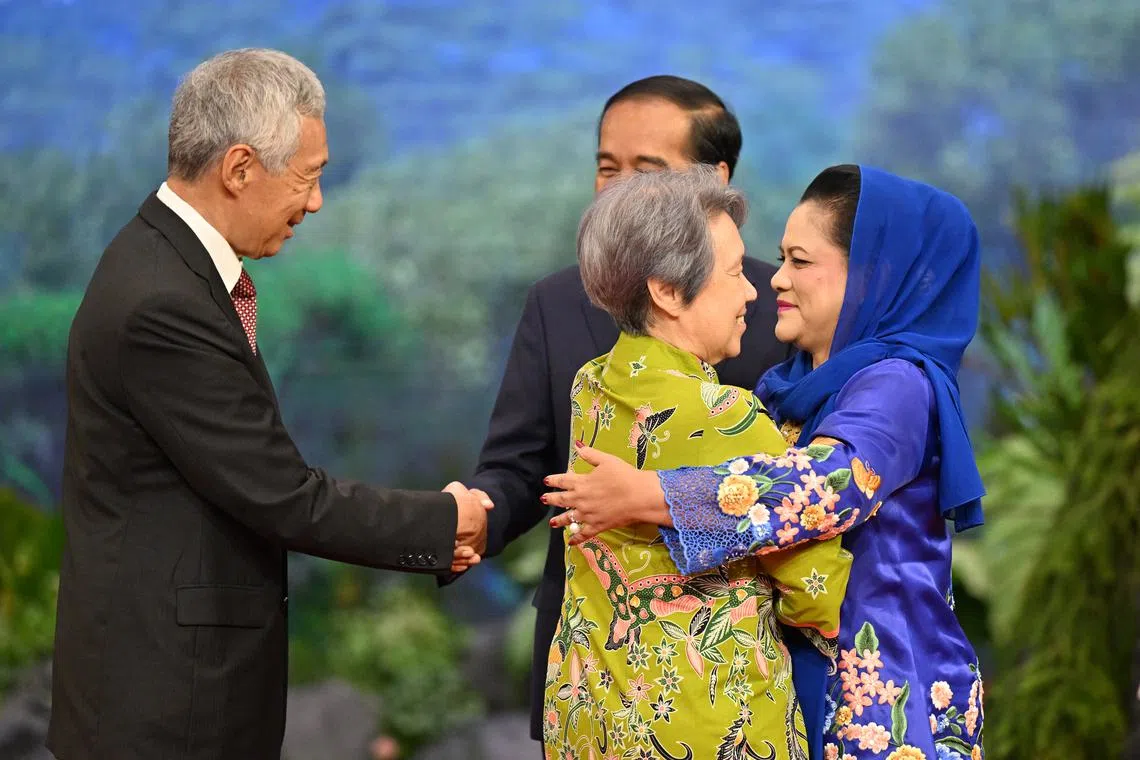Economic integration central to Asean, PM Lee tells leaders at Indonesia summit
Sign up now: Get insights on Asia's fast-moving developments

Singapore PM Lee Hsien Loong (second left) with (from left) Philippine President Ferdinand Marcos Jr., Thailand Permanent Secretary at the Ministry of Foreign Affairs Sarun Charoensuwan, Vietnam PM Pham Minh Chinh, Indonesia President Joko Widodo, Laos PM Sonexay Siphandone, Brunei Sultan Hassanal Bolkiah, Cambodia PM Hun Manet, Malaysia PM Anwar Ibrahim, and East Timor PM Xanana Gusmao at the opening of the 43rd Asean Summit in Jakarta.
ST PHOTO: ARIFFIN JAMAR
Follow topic:
JAKARTA - Economic integration has to remain Asean’s central focus, and efforts to develop new growth areas for the bloc must speed up, regardless of good progress thus far, Prime Minister Lee Hsien Loong said on Tuesday.
PM Lee called on Asean leaders of the bloc to strengthen the institution and keep bolstering the region’s resilience against emerging challenges.
“Economic integration must remain at the core of our agenda. We have done well so far, but we need to move quickly to develop new growth areas, particularly the digital and green economies,” he said.
PM Lee was speaking to fellow Asean leaders at the grouping’s 43rd summit,
This is the second high-level summit hosted by Indonesia as Asean chair in 2023, following the one held in May in Labuan Bajo,
PM Lee on Tuesday paid tribute to the archipelago’s leadership of the bloc.
But he stressed that Asean must move on with the ongoing upgrade of the Asean Trade in Goods Agreement (Atiga),
Atiga helps businesses navigate international trade rules, and is currently being upgraded to make it more relevant to the current needs of the business community.
“It needs to be extended to cover emerging issues like digital, the environment, and trade in crisis situations,” said PM Lee.
He also brought up last Sunday’s launch of negotiations for the Asean Digital Economy Framework Agreement (Defa),
Online trade across countries in South-east Asia is set to become faster and more convenient with the trade pact which could unlock a potential US$2 trillion (S$2.7 trillion) in the region’s digital economy by 2030.
“We must work towards a Defa that is forward-looking and drives inclusive growth, that creates opportunities by improving digital connectivity, skills and literacy in the region, and tangibly benefits our businesses and our people,” said PM Lee.
“A high-quality Asean Defa can help unlock the immense untapped potential of the region’s digital economy.”
Turning to the green economy, PM Lee highlighted how green energy transition is critical to Asean’s sustainable development and continued prosperity.
He brought up the bloc’s commitment to an Asean power grid, a potential project that would bring together sources of green electricity in the region and make its energy consumption more sustainable.
Asean should also collaborate in other areas to enable the region’s green transition, said PM Lee, including carbon trading and capacity building, as well as working with external partners who have greater expertise in these areas.
The bloc must also bolster its ability to address emerging challenges like cybersecurity and food security, he added.

Prime Minister Lee Hsien Loong (left) and his wife Ho Ching (second from right) are greeted by Indonesian President Joko Widodo and first lady Iriana Widodo upon their arrival at the Aseam Summit in Jakarta, on Sept 5, 2023.
PHOTO: EPA-EFE
Singapore supports the Asean Leaders’ Declaration on Strengthening Food Security and Nutrition in Response to Crisis, as well as other statements with various dialogue partners on food security, noted PM Lee.
In order to continue doing its work well, Asean’s institutions and processes must be fit for purpose.
PM Lee said the bloc had made good progress on strengthening its decision-making process in emergency situations; it should now enhance the Asean secretariat, as well as optimise the role of the Asean secretary-general, to more effectively support the bloc’s priorities.
“Ultimately, a more integrated and well-functioning Asean strengthens our centrality, and enhances our relevance and competitiveness in a post-pandemic world,” he said.


